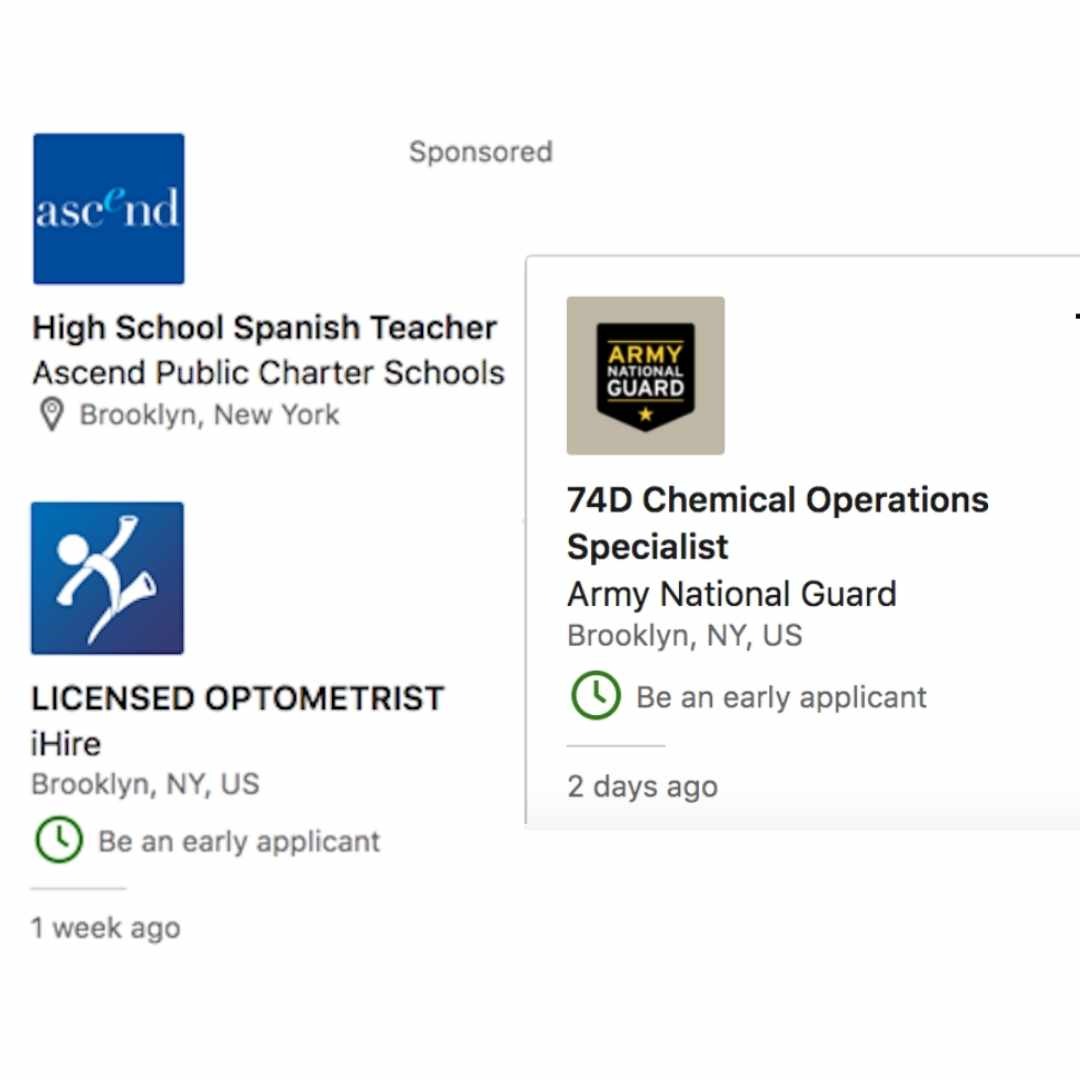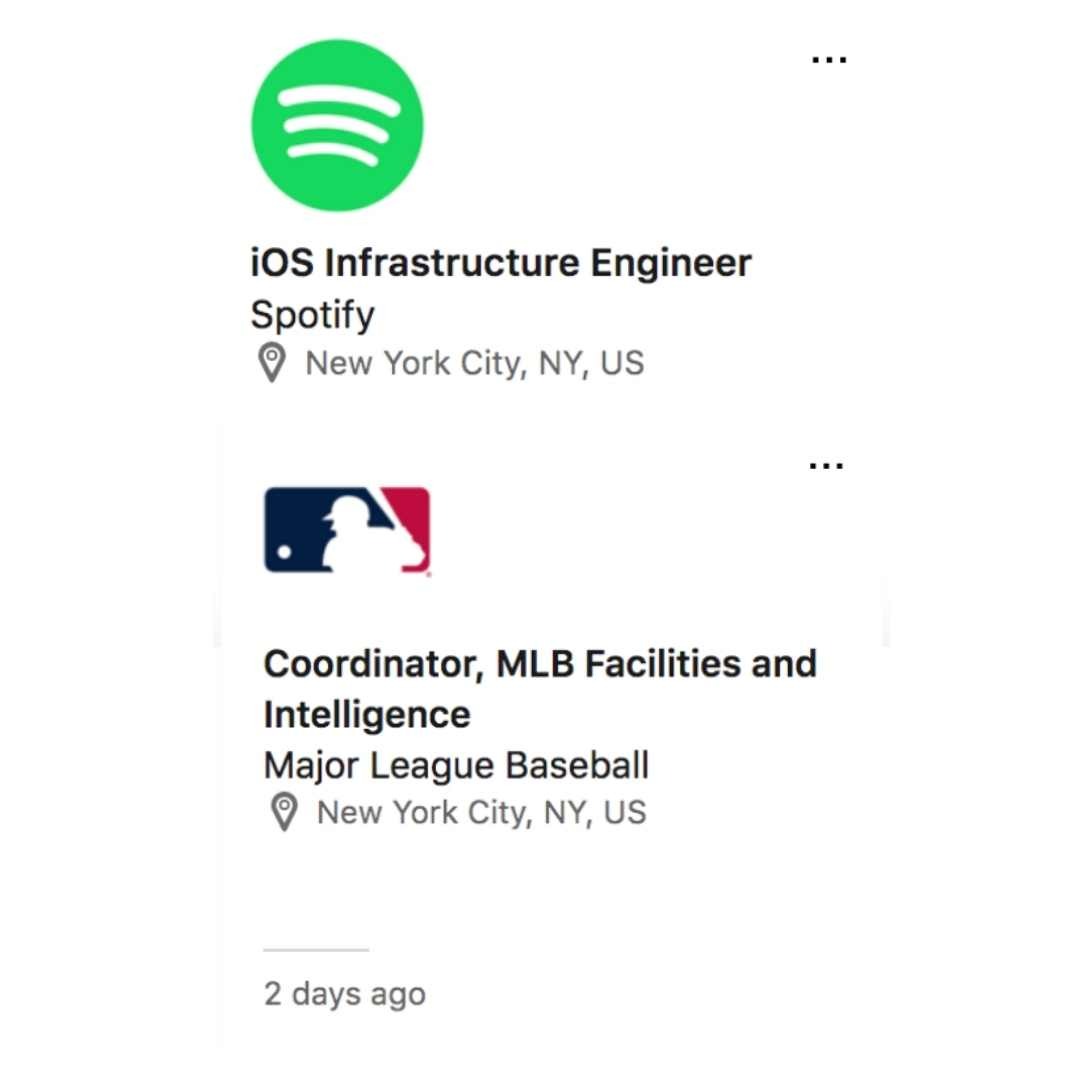Job Recommendations; And Why They're So Underwhelming
Why do the suggested jobs on job boards seem so random?
Have you ever looked for a job online? According to our research, around 58% of professionals have. In the past years, online job search has rapidly become one of the main ways professionals of all levels and industries seek out employment. If you’ve ever done it- then you’re familiar with the process. You’ll upload your resumé, then fill out a whole bunch of questions that are on the resumé you just uploaded, maybe you connect a social media like Facebook or LinkedIn, and you get going. All of a sudden, your inbox gets inundated with emails about open positions that have nothing to do with what you’re looking for- and it often feels like you need to sift through dozens of irrelevant posts in order to find a few jobs that are even in your field.
If you’ve ever looked on a big job website like Indeed, Monster, Dice, Career Builder, etc. then you likely saw many sponsored posts pop up first. Everything from government jobs to remote work, to big corporations, to local businesses seems to have a job posting on at least one of these websites. Research has shown that these big job sites aren’t actually that effective and the number of positions filled on them is fairly low. LinkedIn reported just a few years ago that 85% (and possibly more) of jobs are filled on references and referrals and the efficacy of job boards around 10%. However, some research suggests that number may be as low as 2%. We interviewed hundreds of professionals, and they described the online search as a black hole experience. Dozens of resumés sent out with few responses and even fewer interviews. They struggled to find relevant jobs and when they did - the postings were months old and the positions had been filled. One of the big complaints were job recommendations. Irrelevant job posts suck time and energy away from already exhausted job seekers. When it comes to finding jobs- many of the professionals we interviewed indicated that LinkedIn might be the solution to so many of these job board issues.

The job search is #sponsored.
LinkedIn seems to be thought of as a new age in the job search. It’s the best in the industry in terms of updated positions and finding connections. When it comes to job recommendations though, it leaves a lot to be desired and follows the same patterns of those larger job boards. Our Head of Content decided to take it to the test. She is a 23 year old writer with a liberal arts degree and below are a few of her LinkedIn job recommendations including (but certainly not limited to), a 74D Chemical Operations Specialist with the Army National Guard, an iOS Infrastructure Engineer at Spotify, a High School Physics teacher, and her personal favorite, an Optometrist. All jokes aside- what’s the deal with this?
The job search is #sponsored. Yes, even on LinkedIn. Look on the company section of any job search site and you’ll see that if a company hands over a little extra money, their jobs are guaranteed to appear first. No judgment or suprise there- it’s a business and their primary source of revenue is advertising. For most of these websites and social media platforms that a company can run ads on (including LinkedIn, Facebook, Instagram, Indeed, etc.) you pay for exposure. Essentially, you pay for a certain number of views or clicks on your ad. However, these sites will show your ad to the person most likely to look at it or click on it- not necessarily the person most qualified or interested in the job. Hence- positions in Optometry advertised to our Head of Content, a writer with no experience in the medical field.

Job boards aren't in the business of getting you a job, they're in the business of advertising jobs to you.
The takeaway- job boards are not in the business of getting you a job. They are an advertising platform with a small amount of success placing candidates in companies. Even LinkedIn. Are they bad? No- it’s just important to understand who’s working for whom and what the best use of your resources is. From both a company and a candidate perspective- Job boards are a bit of a waste of time (and money). While an online search is an awesome way to get a gauge of what’s out there before you get going on your search (think of it like reading a Wikipedia page before starting research on a topic) don’t put all your hopes and time in them or use them as a primary tool for your job search. Yes, even LinkedIn.
Out of all the professionals we surveyed, although 63% of them said they’d turn to LinkedIn when looking for a job, less than 5% got their last job through LinkedIn. It’s a professional social media, not a job site. Use it as one of the tools in your job search toolbox, but make sure you’re spending your precious job search time wisely. Instead- reach out to who you know. If you find a position posted on an online job board... Go directly to their company website and see if the position is still open (company sites are usually more up to date). Our research suggests that applying directly to a company usually yields better results than applying through a third party board. Use LinkedIn- but rather than using it as a job board, use it as an opportunity to see if you know anyone at the company. Maybe a former colleague, or someone you went to college with. Ultimately- although the job search process has become so digitized- it is still personal connections that land jobs.
At Meytier- we’re looking to do things a little differently. We don’t make money off of third party advertising, we don’t keep positions on our website after they’ve been filled, and we actively help fill jobs rather than just letting them live on our site indefinitely. The job search is hard for everyone. It’s exhausting, vulnerable, and long. While it’s absolutely worth casting a wide net and seeing what you get- it’s important to be thoughtful with your time. Pursue your personal connections, reach out to companies directly, and only spend time on online job boards that are actually trying to get you a job. Work in tech or financial services? Check out our career page.
Looking for more job search advice? You’re in the right place! Read more here. Browse open opportunities here. Create a Meytier account here.
Privacy Policy Terms Of Use




